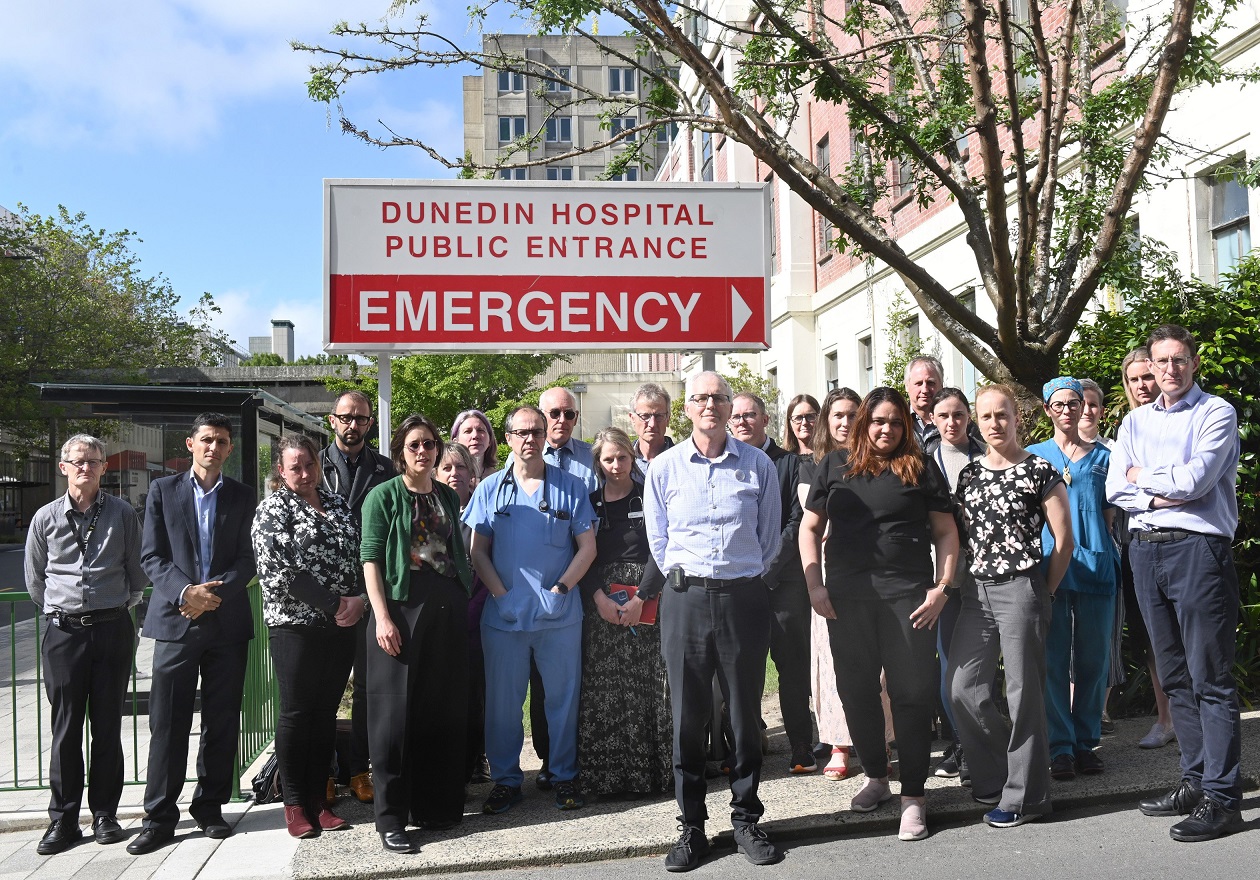The new coalition was slammed for its plan to do away with world-leading anti-smoking laws, with Southern NZ First MP Mark Patterson coming under fire for recent comment specialists were "catastrophising" the issue.
Lung cancer specialist Dr Blair McLaren said he had seldom seen clinical staff so united on any issue.
They were speaking out against the "catastrophic outcome" that would result, he said.
"We will still be telling patients they have a terminal lung cancer, that they have had a life-changing stroke or that they will need their leg amputated for poor circulation — all because smoking remains possible in our country."
The Ministry of Health briefing paper from 2021 had clearly outlined that business as usual was not enough, he said.
"I am happy to forward this to any [MPs] if they wish to be better informed to make the right decision."

"They do not have a logical argument for why they’re appealing this ... [legislation]."
It had been seen as a world-leading decision, and was going to be adopted overseas.
"If you look at the worldwide media, people are gobsmacked that we are taking this step backwards."
The 23 registrars and specialists who gathered outside Dunedin Hospital yesterday afternoon reflected the mood of the medical profession, he said.
Last month the government announced plans to repeal amendments to the Smokefree Environments and Regulated Products Act 1990, including a world-first ban on the sale of cigarettes to future generations.
It aimed to repeal legislation restricting the sale of tobacco to anyone born after 2009 and the phasing in of low-nicotine cigarettes.
Finance Minister Nicola Willis has acknowledged money saved by scrapping the smoke-free laws will be used to help fund tax cuts.
Dr McLaren was one of five specialists who last week wrote a letter to Mr Patterson and National’s Southern MPs Penny Simmonds, Miles Anderson and Joseph Mooney, warning them of the impact on people’s health and urging them to vote according to their conscience.The MPs all described the predicted outcomes as either unknown or wrong and argued that the government would still continue to discourage smoking.
All also raised the concern an outright ban would move cigarette sales to the black market.
Mr Patterson also said that while smoking was bad for people’s health, the specialists were catastrophising the issue and the government did not want to "go full nanny state".
Among those who gathered outside the hospital yesterday was cardiologist Dr John Edmond, who said the repeal was "absolute madness".
Coronary artery disease was largely driven by smoking for many patients, he said.
It made blood more sticky and produced a plaque which caused heart attacks.
The legislation had been set to reduce cardiovascular mortality significantly and save many lives.
"Now that’s all being reversed, and so we see many countries following us, and yet now we’re stopping doing it."I think it is a victory for the tobacco lobby — no more than that."
Geriatrician Dr Xaviour Walker said he worked with people rehabilitating from strokes, for which cigarette smoking was one of the greatest risk factors.
It was important to do everything possible to stop future generations from smoking and support those who already did to quit.
He had also worked with Pacific communities, which had high cardiovascular risk factors made worse by smoking.
"As a Pacific person myself, this is something that I really want to support — any intervention to reduce our our smoking rates with Pacific people ... but also vulnerable communities like Māori, and low socioeconomic deciles."
He encouraged all local MPs to create strong legislation against the "terrible habit".












